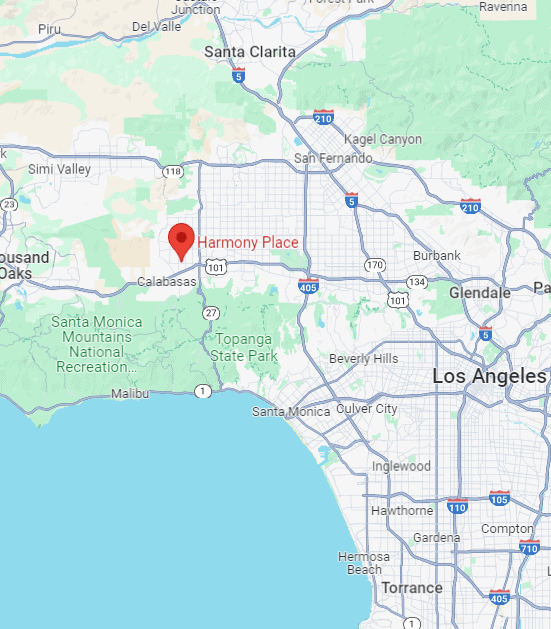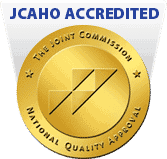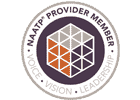Faith Based Drug & Alcohol Rehab Treatment in Los Angeles, CA
What is a Faith Based or Christian Rehab Center?
Faith Based Treatment Programs for Recovery
- 12 Step Programs with a Spiritual Emphasis: Many faith based rehabs use a 12 step model similar to Alcoholics Anonymous or Narcotics Anonymous. In Christian versions, references to a “Higher Power” are specifically identified as God or Christ. Steps are often accompanied by prayer, scripture reading, and pastoral guidance.
- Bible Study and Worship Services: Clients may participate in group or individual Bible studies, church services, and prayer groups. These are intended to provide moral direction, spiritual encouragement, and community support during recovery.
- Faith Driven Counseling and Pastoral Care: Counseling may be delivered by licensed therapists who integrate Christian principles, or by pastors and chaplains who focus on spiritual guidance alongside therapy. Sessions often combine evidence-based methods like cognitive behavioral therapy (CBT) with scripture-based encouragement.
- Group Fellowship and Peer Support: Peer groups may be organized around shared faith commitments. Fellowship activities and small groups provide accountability, encouragement, and shared prayer, reinforcing community as part of healing.
- Holistic Lifestyle Guidance: Many programs include life skills training, volunteer service opportunities, or wellness activities framed within a Christian worldview. Recovery is viewed as healing of the mind, body, and spirit, not only abstinence from substances.
Pros & Cons of Faith Based Programs for Addiction Treatment
Faith based rehab programs can be a valuable option for people seeking recovery, but like any approach, they come with both strengths and limitations. These programs blend spiritual practices with addiction treatment, offering unique benefits for some individuals while presenting challenges for others depending on their beliefs and treatment needs.
Pros
-
Provide strong community support through shared faith and fellowship
-
Integrate spiritual practices like prayer and Bible study that can enhance hope and motivation
-
Offer a holistic approach, addressing mind, body, and spirit
-
Often lower cost or free due to nonprofit or church sponsorship
-
Can create long term support networks through faith communities after treatment
Cons
-
May not appeal to or fit people who do not share the same religious beliefs
-
Can underemphasize medical or evidence based practices if too focused on spirituality
-
Limited availability of medication assisted treatment in some programs
-
Potential lack of licensed clinical staff in strictly faith based settings
-
Risk of excluding or alienating individuals seeking a more secular or inclusive recovery approach
How Much Do Faith Based Rehabs Cost in Los Angeles, CA?
Faith and Christian based treatment programs may typically be included with the overall cost of rehab. The following are general costs of rehab:
- Inpatient (residential) rehab programs typically range from $6,000 to $30,000 for a standard 30-day stay, while luxury facilities may charge up to $60,000 or more per month.
- Outpatient programs (typically spanning 3 months) generally cost between $5,000 and $10,000, though some sources suggest lower daily approximations (e.g., around $575/day).
- Detox services can range considerably, from $250 to $800 per day, depending on level of care and facility.
Does Insurance Cover Faith Based Rehabs Cost in Los Angeles, CA?
Insurance generally covers substance use disorder treatment, and in many cases this includes programs that are faith based or Christian in orientation. What matters most for coverage is whether the facility is licensed and accredited, not whether it incorporates spiritual practices such as Bible study or prayer. The clinical components of treatment like detox services, residential or outpatient care, counseling, and medication assisted treatment are typically eligible for insurance reimbursement. Spiritual elements are considered supportive rather than medical, so they are not billed directly, but they are often offered alongside covered services. Because of federal protections like the Affordable Care Act and the Mental Health Parity and Addiction Equity Act, insurance providers are required to cover substance use treatment on the same terms as other medical or mental health care. This means that when a rehab program integrates faith based approaches into an otherwise accredited treatment setting, insurance can still apply, making faith driven rehab a viable option for those seeking both medical and spiritual support in recovery.
Verify your insurance for treatment today.
Are There Alternative and Non-Faith Based Rehab Programs?
Yes, there are many rehab programs that are not faith based, and they make up a large portion of the treatment landscape. Non-faith based rehabs typically focus on evidence based practices such as cognitive behavioral therapy (CBT), motivational interviewing, contingency management, medication assisted treatment, and holistic wellness services like mindfulness, exercise, and nutrition. These programs are designed to serve people from all backgrounds and do not include religious or spiritual components unless a client requests them. Many individuals prefer these options if they want treatment that is strictly clinical, research driven, or secular in approach.
In addition to Christian programs, some treatment centers incorporate other spiritual or cultural traditions. For example, there are rehabs that use Buddhist principles, often focusing on mindfulness and meditation practices rooted in Buddhism, which can support relapse prevention and emotional regulation. Other centers may draw on Indigenous healing traditions, yoga philosophy, or interfaith spirituality, offering a broader approach to recovery that is not centered on Christianity. These alternative models provide options for people seeking spiritual grounding without aligning with a specifically Christian perspective, ensuring that treatment can be inclusive of diverse beliefs and cultural practices.
One of the most widely known alternatives to faith based recovery groups is SMART Recovery (Self-Management and Recovery Training). Unlike 12 step programs that are rooted in spirituality, SMART Recovery is a peer support program based on cognitive behavioral therapy and motivational methods. It teaches practical tools to manage cravings, cope with urges, and build healthy habits. Meetings are discussion focused, goal oriented, and centered on self empowerment rather than surrender to a higher power.
Treatment at Harmony Place
At Harmony Place Addiction Recovery Center, we believe in providing inclusive mental health and drug and alcohol addiction treatment in Los Angeles, California. While we don’t offer a specific faith-based approach, we do support your beliefs during your recovery. Our comprehensive addiction treatment care helps you achieve long-term healing and a renewed sense of purpose.
Harmony Place provides diverse, inpatient, Partial Hospitalization Programs (PHPs), and Intensive Outpatient Programs (IOPs). Each program includes individual counseling, group therapy, and more. Call us to discuss faith-based treatment centers for addiction and verify your insurance coverage for care. We can direct you to the appropriate resources, as well as inform you of our inclusive approach.
We Will Check Your Insurance

What Are Some Faith-Based Treatment Programs for Drug & Alcohol Addiction in SoCal?
SoCal offers a range of faith-based treatment programs for drug and alcohol addiction that combine spiritual guidance with evidence-based therapies. These programs supply a holistic approach to healing, integrating faith-centered support with comprehensive treatment methods. At Harmony Place, we welcome individuals from all backgrounds and faiths, acknowledging and respecting the melting pot that is indicative of the West Coast lifestyle.
For personalized assistance and more information on the available substance abuse treatment programs, call us at (855) 652-9048.
Faith-Based Programs in Woodland Hills, (CA)
While faith-based programs are available, Harmony Place, at 23041 Hatteras St, Woodland Hills, CA 91367, offers inclusive, accredited treatment to individuals from all walks of life. Our programs’ compassionate approach to addiction treatment combines acceptance with evidence-based therapies. You receive holistic support with the freedom to maintain your faith within a nurturing environment that fosters spiritual and emotional healing.
Harmony Place East: Situated at 22913 Burbank Blvd, Woodland Hills, CA 91367, Harmony Place East provides residential treatment with an emphasis on building a supportive and structured environment for you to overcome Substance Use Disorder (SUD) and any co-occurring conditions.
How to Find a Faith-Based Drug & Alcohol Addiction Treatment Facility in Southern California
Finding a faith-based drug and alcohol addiction treatment facility in Southern California involves several key steps. Begin by specifying your needs and choices, then use targeted searches to find suitable programs. Evaluating facilities, verifying their credentials, and contacting them directly will help you find a program that aligns with your faith and recovery goals.
To find a faith-based drug and alcohol addiction treatment facility in SoCal, follow these steps:
- Identify Your Needs: Determine what type of treatment you require, such as residential or outpatient care, and whether you prefer a specific faith, church-based approach, or inclusive model like those at Harmony Place Treatment Center.
- Search Online: Use search engines to find facilities by typing terms like “faith-based mental health facilities in California,” “church-based mental health programs,” or “faith-based mental health retreats.”
- Evaluate Facilities: Look at the facilities’ websites in your search results. Check for information on their treatment programs, integration of faith into therapy, and their approach to addiction recovery and aftercare support.
- Verify Accreditation: Ensure the facilities are accredited and provide evidence-based therapies alongside faith-based support. Search terms like “faith-based residential mental health facilities” to find comprehensive programs.
- Contact Facilities: Contact the facilities directly to inquire about their treatment methods, insurance acceptance, and how they incorporate faith into their recovery programs.
- Seek Referrals: Ask healthcare providers, local churches, or support groups for recommendations on reputable faith-based treatment centers in California.
- Visit Facilities: Visit the facilities to experience their environment and meet with staff to ensure they meet your needs.
For further assistance, contact us at Harmony Place Rehab Center to explore our drug and alcohol treatment options in Southern California.
What Is the Admissions Process for a Program at Harmony Place Rehab Center?
The admissions process for a program at Harmony Place Recovery Center is structured to provide a comprehensive and supportive start to treatment. It includes an initial assessment, insurance verification, intake appointment, treatment planning, program orientation, and the initiation of personalized care tailored to each patient’s needs.
Initial Assessment: The admissions procedure starts with an initial free assessment, where you undergo a comprehensive evaluation to determine your precise needs and treatment objectives. This assessment contains a review of your medical history, substance use patterns, mental health status, and personal background. The goal is to understand your unique situation clearly to tailor the treatment plan effectively.
Insurance Verification: Next, we’ll verify insurance coverage to determine the financial aspects of the treatment. This involves checking your insurance policy to confirm benefits, coverage limits, and out-of-pocket costs. We’ll work with the insurance provider to ensure our program is covered and address any questions or concerns about payment.
Intake Appointment: During the intake appointment, you meet with a treatment coordinator to finalize your admission. This step includes discussing the details of the program, reviewing treatment options, and addressing any initial questions. You are also introduced to the center’s procedures, policies, and the resources available throughout your recovery.
Treatment Planning: Following the intake appointment, a personalized treatment plan is designed based on the initial assessment. This plan outlines specific goals, treatment modalities, and other elements integrated into the recovery process. It serves as a roadmap for your journey through the program, ensuring your spiritual and therapeutic needs are met.
Program Orientation: You participate in a program orientation before beginning treatment. This session familiarizes you with our facilities, staff, and daily routines. The orientation covers the structure of the program, including integrating spiritual practices, therapy sessions, and support groups, helping you feel prepared and comfortable.
Treatment: You begin treatment after the orientation. This includes individual and group counseling and other methods designed to support your recovery. The treatment is created and tailored for your needs, focusing on your mental health and spiritual growth throughout the program.
Call Us 24/7: (855) 652-9048
Certifications & Accreditations

























